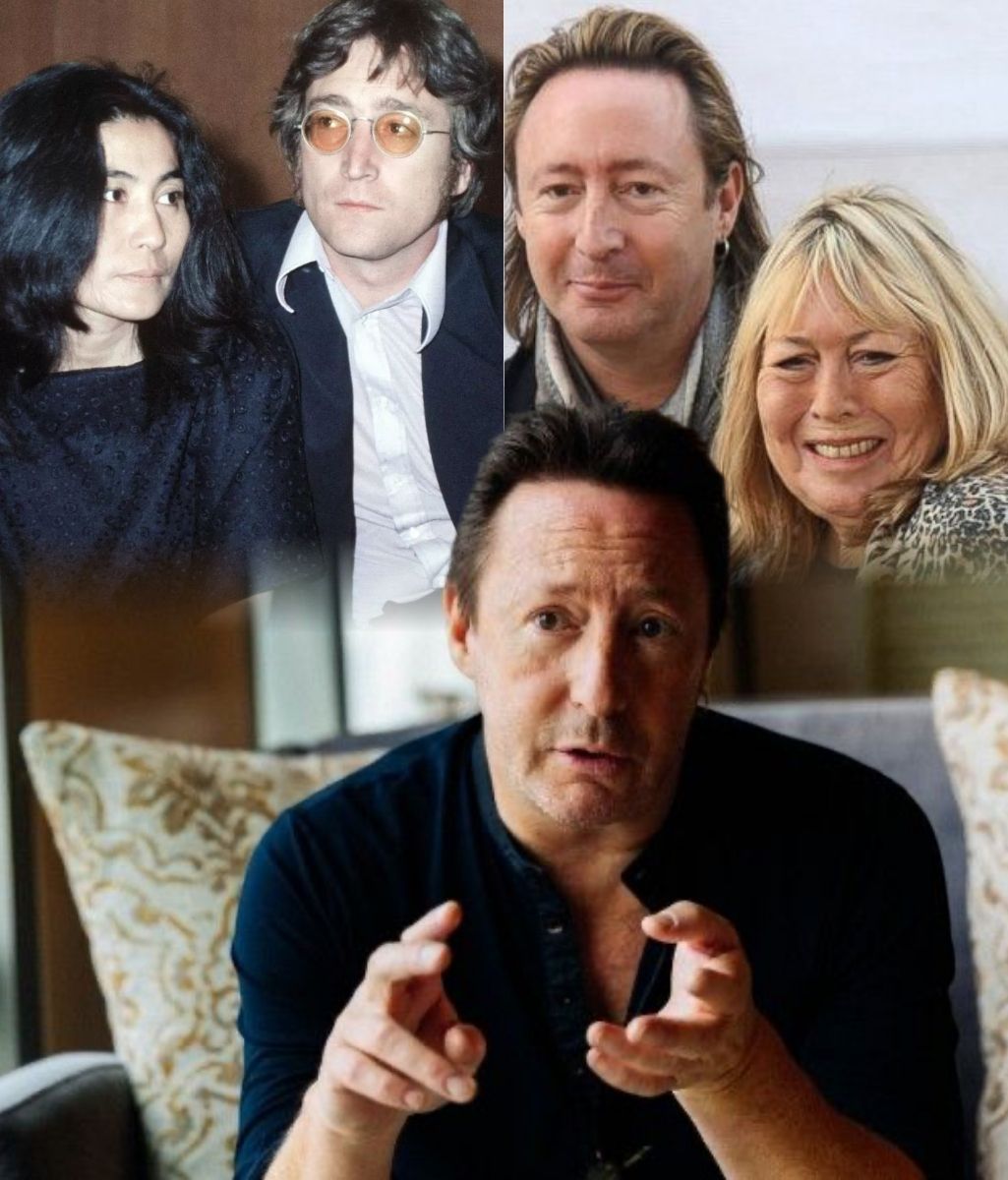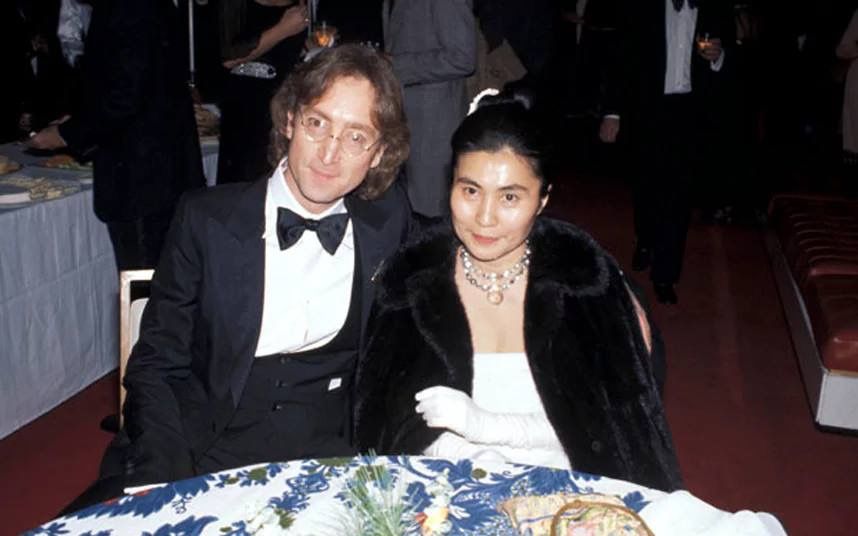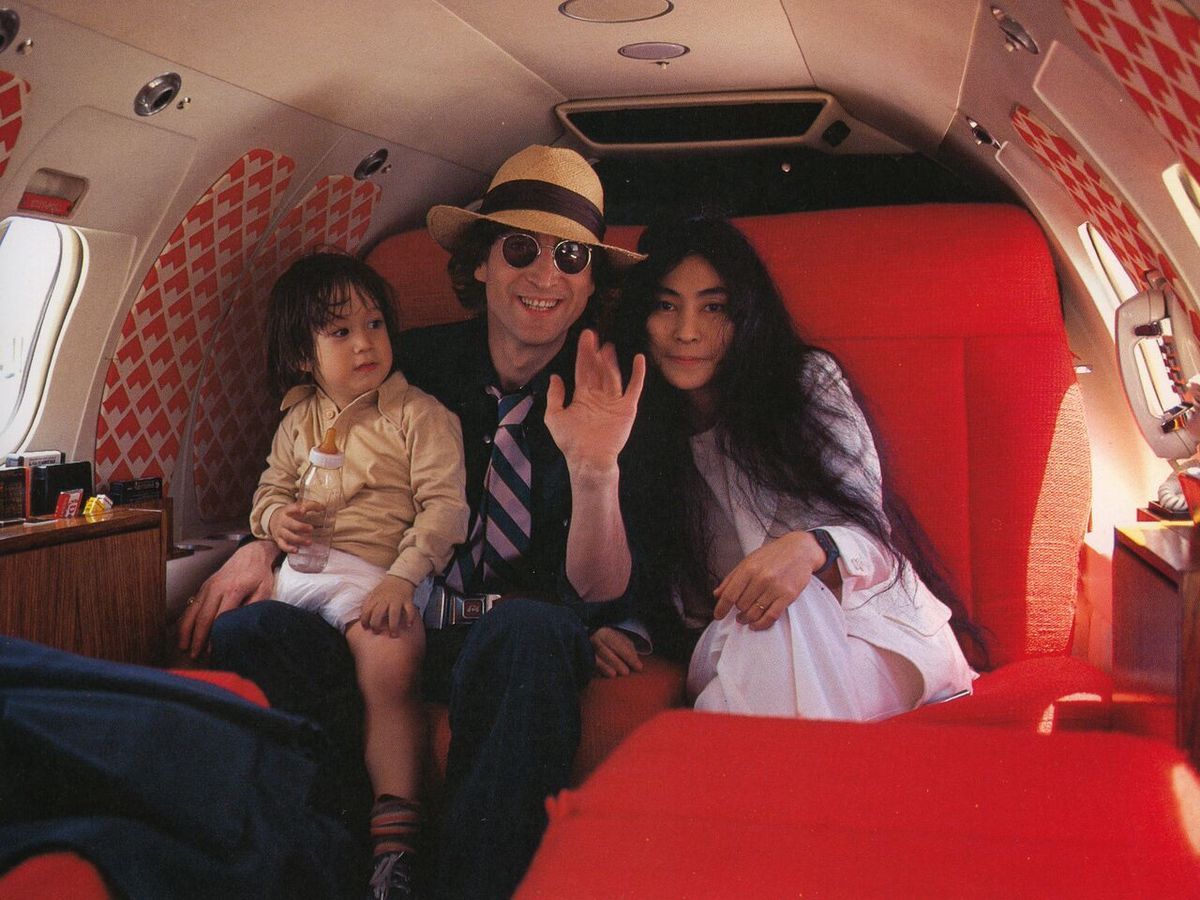
The truth, when it finally came, did not arrive with anger or spectacle. It came quietly — steady, precise, and devastating.
Julian Lennon, the son of John and Cynthia Lennon, has spent much of his life navigating the strange paradox of being the child of a man the world revered but he barely knew. His confession, when it came, was not an attack, but an unguarded reckoning with pain that never fully healed.
💬 “From my point of view, I felt he was a hypocrite,” Julian said in an interview years later. “He could preach peace and love to millions but couldn’t show an ounce of it to his own family.”
It is a quote that still cuts like glass. For decades, fans of John Lennon have embraced the image of the dreamer, the idealist, the man who wrote Imagine and stood for peace in an age of division. But for Julian, growing up meant seeing that image crumble behind closed doors. He did not live inside the myth. He lived inside the silence it left behind.

Julian was only five when his world began to fracture. One afternoon, his mother, Cynthia, returned home to find John with Yoko Ono — a discovery that ended their marriage and shattered the illusion of domestic harmony. For the young boy, it was the moment when love turned into absence, and the man the world called a genius became a stranger.
The years that followed were marked by long stretches of distance and disconnection. While John’s career soared into activism and artistic reinvention, Julian and Cynthia were left to pick up the fragments. Fame had made John Lennon larger than life — but for his firstborn son, it had also made him unreachable.
There were brief reunions, fragile attempts to reconnect. In 1973, during John’s so-called “Lost Weekend,” father and son shared fleeting moments of laughter and music. For a while, there was hope — hope that the man who sang about peace might finally find it within himself, at least enough to bridge the gap with his child. But just as quickly as those moments came, they vanished again.

When John Lennon was murdered in 1980, the world mourned a hero. Crowds filled the streets. Radio stations fell silent. Fans wept for the loss of a voice that had shaped a generation. But Julian’s grief was different. It was not only for a father gone too soon, but for a relationship that had never been given the chance to fully exist.
Forgiveness, for Julian, would come through music. Over the years, his own songs have become quiet letters to the past — searching, tender, and filled with the ache of unspoken words. His voice carries the echo of the man who gave him life, but it is tempered by a wisdom born of distance.
Still, the ache remains. Some wounds, even time cannot tune. For all the reconciliation and reflection that life may bring, the divide between legend and fatherhood remains a shadow in Julian’s story.
And yet, there is grace in his honesty. By speaking his truth, Julian Lennon has done what his father once urged the world to do — imagine something better, something real. His words do not destroy John Lennon’s legacy; they complete it, reminding us that even the greatest dreamers leave behind human flaws.
In the end, Julian did not inherit his father’s myth. He inherited his music — and with it, the courage to face what the songs could never say aloud.